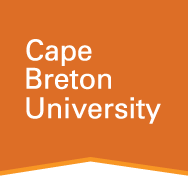Business Administration courses
Cape Breton University

- Canada
- World Rank : -
- Visit Website
Supply Chain Management
Play an important role in any organization
The Bachelor of Business Administration program (BBA) prepares students for self-employment and careers in private and public enterprise, cooperatives, government service, and for graduate study. The BBA program core courses put an emphasis on a broad range of business topics while the program as a whole provides a foundation in both business and the traditional liberal arts. Students graduate with the ability to analyze a business situation, identify alternative responses and resolve business difficulties.
A core focus of the BBA program is entrepreneurialism. Students graduate with the knowledge to manage and start their own business in a field they’re passionate about. Not everyone is interested in studying business but it can be an investment in your future. Graduating with a BBA gives you the right tools to build your dreams into a well-structured venture.
Why a BBA at CBU?
Join the ranks of an organization or build a business from the ground up, secure the foundation you need to do both and more with our BBA program.
Areas of Study
Supply the Demand
A Major in Supply Chain Management (SCM) is the newest addition to CBU’s BBA program. SCM provides a unique opportunity to learn about the fascinating challenges companies face in today’s global networked economy. Demand is high for SCM professionals, both in Canada and abroad. Employers want people who have the ability to see the business as a system, not just the bottom line.
What Is The Study of Supply Chain Management?
Supply Chain Management is the management of materials, information and finances as they move from the manufacturer to the supplier, retailer, and ultimately to the end user. SCM professionals are responsible for making sure the right product is available to the customer in the right quantity and condition, at the right time, place and cost.
This program provides insight into global sourcing and how it plays an essential part in the supply chain. Students gain understanding of planning and information technology tools to effectively coordinate the stakeholder activities in the supply chain. By majoring in SCM, students graduate prepared to enter the workforce with a broader understanding of SCM and business logistics.
Why Study Supply Chain Management At CBU?
Be a part of the process and make a difference in the end result.
Entry requirement for international students
Students must require graduation from an academic secondary school program or equivalent with an average of “C” in five, senior academic-level/university preparatory courses with English, Mathematics and four additional courses.
TOEFL
Paper-Based Test: 550
Computer-Based Test: 213
Internet-Based Test: 80
IELTS
Overall Score: 6.5
No Band Below: 6.0
| Type of university | Public |
| Undergraduate Programs | 17 |
| Postgraduate Programs | 3 |
| Diploma and Certificate Programs | 7 |
| Tuition per academic year for Undergraduate International Students | $17,809 |
| Test scores accepted | IELTS, TOEFL |
For international candidates aspiring to study at the university, it is mandatory to have an estimate of the cost of living in Canada to survive comfortably in a foreign land. Below is the estimated tuition and student fees for the Fall/Winter 2019 – 2020 presented-
| Fees | Undergraduate (CAD) | Graduate (CAD) |
|---|---|---|
| Tuition | 8,040 | 2,012 (for six credit course) |
| International differential fees | 8,040 | 1,608 |
| International medical plan | 744 | 744 |
| Fees | 985 | 128 |
| Housing | 5,910 | 5,910 |
| Meal Plan | 4,744 | 4,744 |
| Total | 28,463 | 15,146 |
Note: The graduate fee depends on the number of courses offered by the students. Thus, graduate students should expect to pay more than 400% of the above-stated fees
| Tuition Fees in Canada (1st Year Average) | BE / BTech: CA$22,600 | MBA: CA$25,375 | MS: CA$17,225 | BBA: CA$20,560 | MEng: CA$22,225 | BSc: CA$20,745 | MASc: CA$20,375 | MIM: CA$28,900 | MA: CA$12,970 | MFin: CA$32,785 | BHM: CA$20,560 | MEM: CA$17,040 |
| Average Accomodation & Food Costs in Canada | CA$8890 Per Year |
| Entrance Exams in Canada | TOEFL: 86 | IELTS: 6.5 | PTE: 60 | GRE: 309 | GMAT: 560 | SAT: 1177 |
| Work and Study in Canada | Permitted for 20 hours/week with a valid study permit. |
| Post Study Work Permit in Canada | Up to 3 Years after graduation depending on the course. |
| Cost of Student Visa in Canada | CAD 150 |
| Student Visa in Canada | A Canada student permit is a document issued by IRCC (Immigration, Refugees and Citizenship Canada) for international students in Canada. To study in Canada, you will require a student permit, which serves as a student visa. |
| Intakes in Canada | There are Three Intakes in Canada: Fall (September), Winter (January) and Spring (May) |
| Top Job Sectors in Canada | Business Management, Engineering, Economics, Dentisty, Law, Computer Science. |
| Economy in Canada | GDP Growth of 1.9% (2018) 1.5% (2019e), 10th Largest Economy in the World by Nominal |
Tuition & fees :
$ 8,476
Hostel & Meals :
$ 5,025
Total
$ 13,501